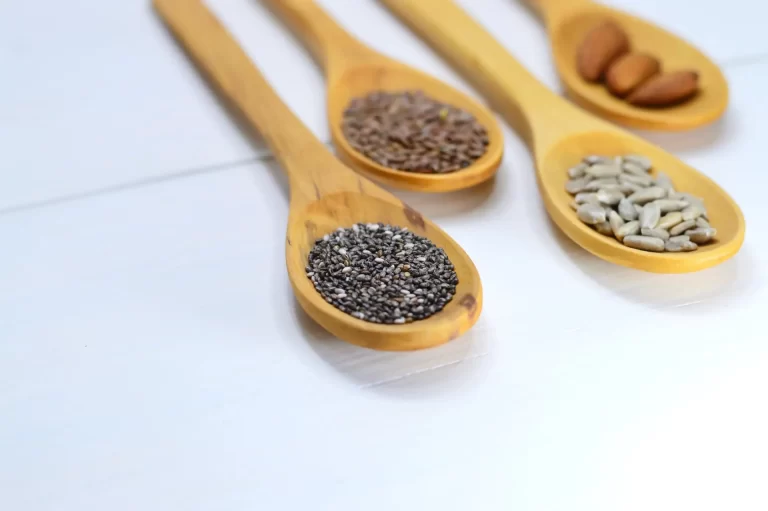7 Side Effects Of the Keto Diet

The keto diet has become one of the most popular diets in recent years, with many claiming it to be a great way to lose weight quickly. But with any diet, there are side effects that can come along with it. In this article, we will discuss 7 potential side effects associated with the keto diet and what can be done to avoid them. Whether you are already on the keto diet or considering starting it, this article is for you!
Side Effect 1: Bad Breath
Bad breath is a common side effect of the keto diet. When you cut down on carbs, your body enters into a state called ketosis. During this phase, your liver starts producing ketones that break down fat for energy. However, as these ketones are released through urine and breath, they can cause a distinct odor that resembles nail polish remover or fruit.
To combat bad breath during the keto diet, it’s important to stay hydrated by drinking plenty of water throughout the day. Chewing sugar-free gum or mints can also help mask any unpleasant odors in your mouth. Additionally, maintaining good oral hygiene by brushing and flossing regularly can reduce bacteria in your mouth that contribute to bad breath.
While bad breath may be inconvenient during the keto diet, it’s generally not harmful and will improve over time as your body adjusts to burning fat for fuel instead of carbohydrates.
Side Effect 2: Low Blood Sugar
Another potential side effect of the keto diet is low blood sugar. When you drastically reduce your carb intake, your body may not be able to produce enough glucose to meet its energy needs. As a result, your blood sugar levels can drop too low, causing symptoms such as dizziness, fatigue, and irritability.
People who are already at risk for hypoglycemia, such as those with diabetes or insulin resistance, should be particularly cautious when following the keto diet. It’s important to monitor your blood sugar levels regularly and adjust your medication dosage if necessary. Eating small meals throughout the day and consuming carbs from healthy sources like fruits and vegetables can also help prevent low blood sugar on a keto diet.
In summary, while the keto diet has several benefits like weight loss and improved mental clarity, it’s important to be aware of its potential side effects such as low blood sugar. If you’re planning on starting this diet or have any health concerns regarding it, make sure to consult with a healthcare professional before making any drastic changes to your eating habits.
Side Effect 3: Constipation
Constipation is one of the most common side effects experienced by people on a keto diet. This happens because the diet involves reducing carbohydrate intake, which means that there is less fiber in the diet. Fiber helps to keep bowel movements regular and easy, so without enough fiber, constipation can occur. Additionally, when following a keto diet, it is important to drink plenty of water to avoid dehydration which can also lead to constipation.
To combat constipation while on a keto diet, it may be helpful to increase your fiber intake through low-carb vegetables such as broccoli or cauliflower. You could also consider taking a fiber supplement or consuming foods rich in healthy fats like avocado or nuts which help lubricate the gut and promote regular bowel movements. It’s important to remember that constipation is only temporary and usually resolves itself after a few days once your body adjusts to the changes brought about by going into ketosis.
Side Effect 4: Fatigue
Fatigue is a common side effect of the keto diet, especially during the transition period from carbohydrates to fat. This can happen because your body is adjusting to a new way of producing energy. Normally, your body uses carbohydrates as its primary source of fuel but when you reduce your carbohydrate intake significantly, it switches to using fats instead. During this time, you may feel sluggish and lack energy.
To combat fatigue on the keto diet, make sure you are consuming enough calories and electrolytes such as sodium, potassium, and magnesium. These nutrients play an important role in maintaining fluid balance and nerve function in our bodies. You can also try incorporating more high-fat foods like nuts and avocados into your meals for sustained energy.
If fatigue persists or becomes severe, it’s important to speak with a healthcare provider as it could be a sign of an underlying issue or nutrient deficiency that needs addressing. Overall, being mindful of your nutrient intake while on the keto diet can help minimize fatigue and ensure that you are still feeling energized throughout the day.
Side Effect 5: Nausea & Vomiting
Nausea and vomiting are two common side effects of the ketogenic diet that affect many people during their first few days or weeks on the diet. This is because when you start a keto diet, your body undergoes a process known as ketosis, where it begins to use fat instead of carbohydrates as its primary source of energy. During this transition period, some individuals may experience an upset stomach, leading to nausea or vomiting.
To minimize these symptoms, it is recommended that you start out with a low-carb intake and gradually increase your fat consumption over time. It is also important to stay hydrated by drinking plenty of water throughout the day and avoiding consuming too much protein in one sitting. Additionally, eating small meals throughout the day can help reduce stress on your digestive system.
If nausea or vomiting persists for more than a few days after starting the keto diet, it is essential to speak with your healthcare provider. Your doctor may recommend taking electrolyte supplements or increasing your fiber intake through leafy green vegetables or supplementation to alleviate these symptoms. Remember that while experiencing side effects such as nausea and vomiting can be uncomfortable, they are typically temporary and should subside once your body has adjusted to its new dietary regimen.
Side Effect 6: Kidney Stones
One of the potential side effects of following a keto diet is the formation of kidney stones. This is because the keto diet is high in protein, which can increase the amount of calcium and uric acid in your urine. When these substances are present in excess amounts, they can crystallize and form painful stones in your kidneys or urinary tract.
To reduce your risk of developing kidney stones on a keto diet, it’s important to stay hydrated by drinking plenty of water throughout the day. You should also limit your intake of foods that are high in oxalates, such as spinach, almonds, and rhubarb. Additionally, you may want to consider supplementing with magnesium citrate or potassium citrate to help prevent stone formation.
While kidney stones are a potential side effect of following a keto diet, they don’t affect everyone who tries this eating plan. By taking steps to minimize your risk and staying vigilant for symptoms like back pain or blood in your urine, you can enjoy all the benefits that come with eating low-carb without worrying about this particular complication.
Side Effect 7: Nutrient Deficiencies
One of the side effects of following a keto diet is nutrient deficiencies. Since this diet restricts carbohydrate intake, it can lead to inadequate consumption of essential vitamins and minerals found in carbohydrate-rich foods such as fruits, whole grains, and legumes. These nutrients are crucial for maintaining good health and preventing chronic diseases.
A study published in the Journal of the American College of Nutrition found that individuals following a ketogenic diet were at risk for developing micronutrient deficiencies in areas such as magnesium, calcium, vitamin D, and several B vitamins. A deficiency in these essential nutrients can lead to fatigue, muscle weakness, poor bone health, impaired immune function, and even an increased risk for heart disease.
To prevent nutrient deficiencies while on a keto diet, it is important to consume a wide variety of low-carbohydrate vegetables such as spinach, broccoli, or cauliflower which are high in fiber and rich in nutrients. Supplementation may also be necessary to ensure adequate intake of certain vitamins or minerals that may be lacking in your diet.
Conclusion
In conclusion, while the keto diet has been shown to have some positive effects on weight loss and blood sugar control, it is important to remember that there are also potential side effects. These side effects can range from mild discomforts like constipation and bad breath to more serious issues such as nutrient deficiencies and liver problems. It is crucial to speak with a healthcare professional before starting the keto diet, especially if you have any underlying medical conditions.
Additionally, it is important to note that the keto diet may not be sustainable for everyone in the long term. The restrictive nature of the diet can make it difficult for some people to stick with it over time. It is important to consider your individual needs and preferences when deciding whether or not to try the keto diet.
Overall, while the keto diet may offer some benefits for certain individuals, it is not without its potential drawbacks and should be approached with caution. As with any dietary change or lifestyle modification, consulting with a healthcare professional is essential in order to ensure safety and effectiveness.






